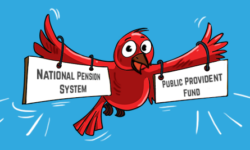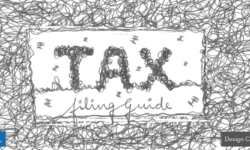
Taxes can be complex, and even a small mistake can result in costly penalties or lost deductions. Understanding common pitfalls and learning how to avoid them is key to protecting your financial health. Here’s a guide to help you steer clear of common tax mistakes to avoid and ensure a smooth filing process.
1. Filing Late or Missing Deadlines
“Procrastination is your wallet’s worst enemy.”
Missing the tax filing deadline can lead to penalties and interest charges. The IRS typically imposes a 5% penalty on unpaid taxes for each month your return is late, up to 25%.
How to Avoid It:
- Mark key deadlines on your calendar.
- Consider filing for an extension if you need more time (but remember, an extension only postpones the filing date, not payment deadlines).
2. Incorrect Social Security Numbers or Personal Information
“One typo can delay your refund.”
Mistakes in Social Security numbers, names, or bank details can slow down processing and refund payments.
How to Avoid It:
- Double-check all personal information before submitting your return.
- Use tax software or professional services that flag errors for review.
3. Misreporting Income
“The IRS knows more than you think.”
Failing to report all sources of income — including freelance gigs, investments, or side jobs — can result in penalties. The IRS receives copies of W-2s, 1099s, and other income statements directly from employers and financial institutions.
How to Avoid It:
- Cross-reference your reported income with your financial documents.
- Keep a checklist of all potential income sources to ensure nothing is overlooked.
4. Overlooking Deductions and Credits
“Leaving money on the table is a costly mistake.”
Many taxpayers miss out on valuable deductions and credits like:
- Student loan interest
- Medical expenses
- Home office deductions
- Education credits
How to Avoid It:
- Familiarize yourself with eligible deductions.
- Use tax software that identifies applicable deductions based on your financial situation.
5. Failing to Keep Proper Records
“Good records can save you from IRS headaches.”
Insufficient documentation can result in denied deductions or complications during audits.
How to Avoid It:
- Save receipts, invoices, and financial statements for at least three years.
- Digital tools like QuickBooks, Expensify, or Mint can simplify record-keeping.
6. Claiming Ineligible Dependents
“Not everyone qualifies as a dependent.”
Claiming dependents incorrectly can trigger IRS scrutiny. Dependents must meet specific criteria related to age, residency, and financial support.
How to Avoid It:
- Review IRS dependency rules carefully.
- When in doubt, consult a tax professional.
7. Incorrectly Calculating Taxable Income
“Miscalculations can cost you big.”
Misreporting your taxable income can lead to underpayment penalties or missed refunds.
How to Avoid It:
- Use reliable tax software or consult with an accountant.
- Ensure deductions and exemptions are calculated correctly.
8. Forgetting to Sign Your Return
“An unsigned return is like an unmailed letter.”
Forgetting to sign your return will result in processing delays — or even rejection.
How to Avoid It:
- If filing electronically, use a secure digital signature.
- For paper filings, double-check the signature section before mailing.
9. Mismanaging Estimated Tax Payments
“Freelancers and gig workers—this one’s for you.”
Self-employed individuals or investors with significant income may need to make quarterly estimated tax payments. Missing these can lead to penalties.
How to Avoid It:
- Use IRS Form 1040-ES to calculate estimated payments.
- Set reminders to pay by the quarterly deadlines.
10. Ignoring IRS Notices
“Ignoring tax issues won’t make them disappear.”
Failing to respond to IRS notices can escalate minor issues into serious financial problems.
How to Avoid It:
- Open all IRS correspondence immediately.
- Respond promptly or consult a tax professional if you’re unsure how to proceed.
Final Thoughts
Avoid common tax mistakes it is about preparation, organization, and staying informed. By following these strategies, you can minimize errors, reduce penalties, and maximize your tax savings.
Stay proactive and take charge of your financial future — every smart move pays off.





